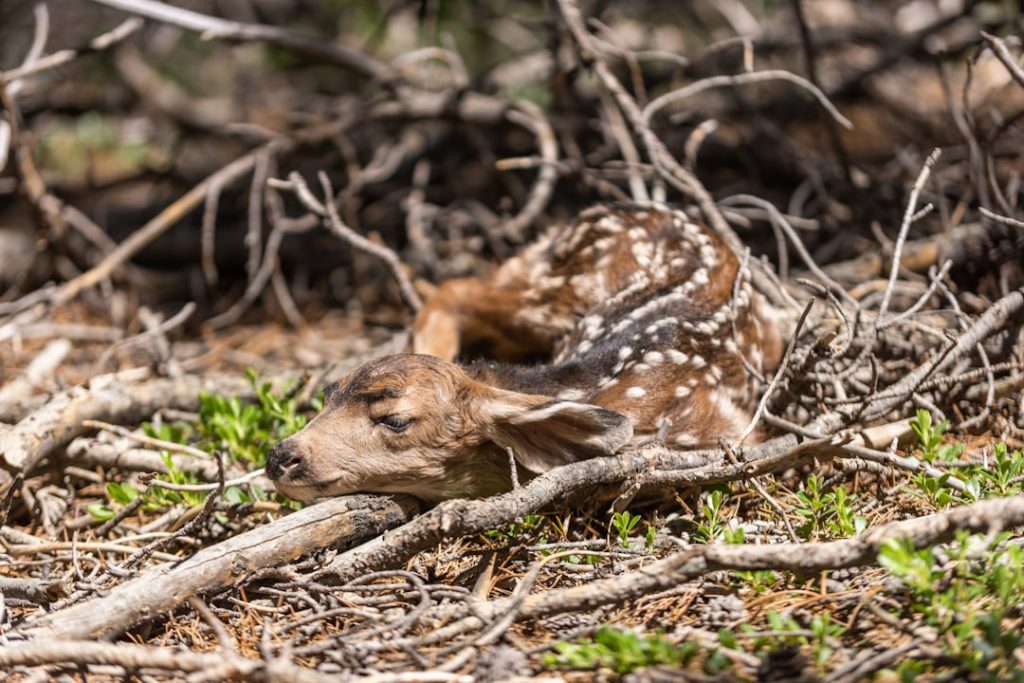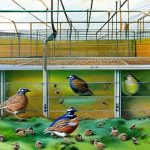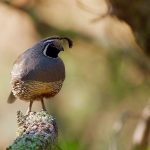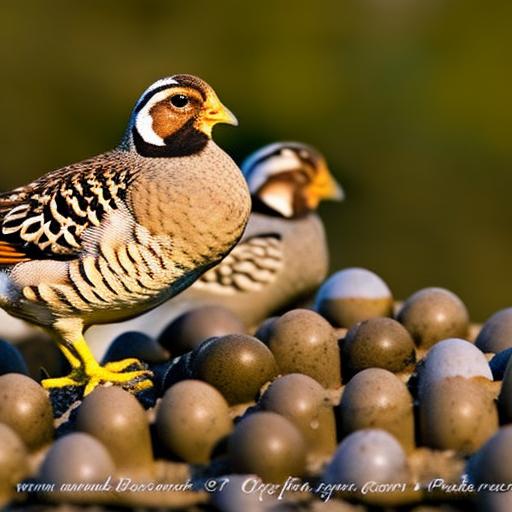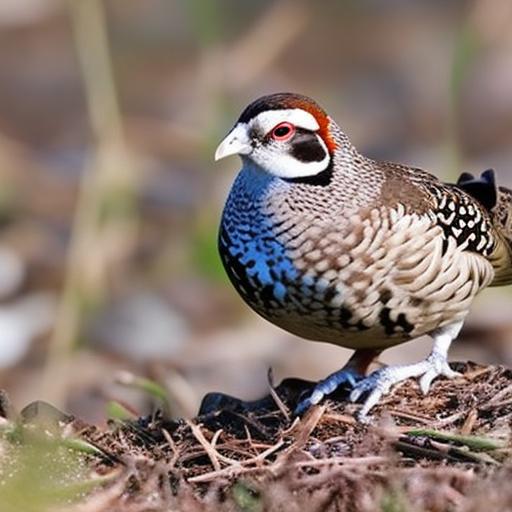The wild quail breeding industry is a niche market that caters to individuals and businesses looking to breed and rear quail for various purposes, such as hunting, meat production, or conservation efforts. Wild quail, also known as game birds, are popular for their small size, delicious meat, and ability to thrive in a variety of environments. Breeding wild quail requires specialized knowledge, skills, and resources to ensure the health and well-being of the birds and the success of the breeding program.
Wild quail breeding typically involves selecting healthy breeding stock, providing proper care and housing, managing breeding cycles, and rearing the offspring until they are ready for their intended purpose. The industry is often regulated by local, state, and federal authorities to ensure the ethical treatment of the birds and compliance with wildlife conservation laws. Understanding the wild quail breeding industry is essential for anyone considering entering this field, as it requires a significant investment of time, effort, and resources to be successful.
Table of Contents
- 1 Factors to Consider Before Buying Breeding Wild Quail
- 2 Finding a Reputable Breeder or Supplier
- 3 Legal and Regulatory Considerations
- 4 Ensuring Proper Care and Housing for Breeding Wild Quail
- 5 Potential Challenges and Risks in Breeding Wild Quail
- 6 Tips for Successful Breeding and Rearing of Wild Quail
- 7 FAQs
Key Takeaways
- The wild quail breeding industry involves capturing wild quail for breeding and raising them in captivity.
- Before buying breeding wild quail, consider factors such as the purpose of breeding, the availability of suitable habitat, and the necessary resources for care and housing.
- When finding a reputable breeder or supplier, look for one with a good track record, proper licensing, and adherence to ethical and legal standards.
- Legal and regulatory considerations for breeding wild quail may include permits, wildlife conservation laws, and regulations on transportation and trade.
- Ensuring proper care and housing for breeding wild quail involves providing suitable enclosures, nutrition, and veterinary care to maintain their health and well-being.
Factors to Consider Before Buying Breeding Wild Quail
Before buying breeding wild quail, there are several important factors to consider to ensure a successful and sustainable breeding program. First and foremost, it is crucial to assess the intended purpose of the breeding program, whether it is for hunting, meat production, conservation efforts, or other purposes. Different purposes may require different breeds of wild quail and specific management practices to achieve the desired outcomes.
Additionally, potential breeders should consider the availability of suitable habitat and resources for housing and caring for the quail, as well as the necessary permits and regulations for breeding wild quail in their area. It is also important to assess the financial investment required for purchasing breeding stock, building suitable housing facilities, and providing ongoing care and management of the birds. Finally, potential breeders should consider their level of experience and knowledge in wild quail breeding, as well as their ability to dedicate the time and effort required to ensure the success of the breeding program.
Finding a Reputable Breeder or Supplier
Finding a reputable breeder or supplier of wild quail is essential for acquiring healthy breeding stock and ensuring the success of a breeding program. Reputable breeders or suppliers should have a proven track record of ethical breeding practices, high-quality stock, and excellent customer service. Potential buyers can research breeders or suppliers through online reviews, industry associations, and referrals from other quail breeders or enthusiasts.
When evaluating potential breeders or suppliers, it is important to inquire about the health and genetic history of their breeding stock, as well as their management practices for housing, feeding, and caring for the quail. Visiting the breeder’s facilities in person can provide valuable insight into their operation and the condition of their birds. Additionally, potential buyers should inquire about any guarantees or support offered by the breeder or supplier, as well as their willingness to provide guidance and advice for new breeders.
Legal and Regulatory Considerations
The breeding of wild quail is subject to various legal and regulatory considerations to ensure the ethical treatment of the birds and compliance with wildlife conservation laws. Before starting a breeding program, potential breeders should research and understand the specific regulations governing the breeding and rearing of wild quail in their area. This may include obtaining permits or licenses from local, state, or federal wildlife agencies, as well as complying with regulations related to housing, care, and transportation of the birds.
In addition to wildlife conservation laws, breeders should also be aware of any regulations related to the sale or transfer of wild quail, as well as any restrictions on releasing captive-bred quail into the wild. Compliance with legal and regulatory considerations is essential for maintaining the integrity of the breeding program and avoiding potential fines or penalties for non-compliance. Working with legal counsel or wildlife experts can help potential breeders navigate the complex legal and regulatory landscape surrounding wild quail breeding.
Ensuring Proper Care and Housing for Breeding Wild Quail
Proper care and housing are essential for the health and well-being of breeding wild quail. When setting up housing facilities for wild quail, it is important to provide adequate space for the birds to move around freely, as well as protection from predators and inclement weather. Housing should also include nesting areas for breeding pairs and roosting areas for the birds to rest comfortably.
In addition to housing, proper care for breeding wild quail includes providing a balanced diet that meets their nutritional needs, access to clean water at all times, and regular health checks to monitor for any signs of illness or disease. It is also important to manage breeding cycles carefully to ensure the health and genetic diversity of the offspring. Providing proper care and housing for breeding wild quail requires ongoing attention and dedication to meet the unique needs of these birds.
Potential Challenges and Risks in Breeding Wild Quail
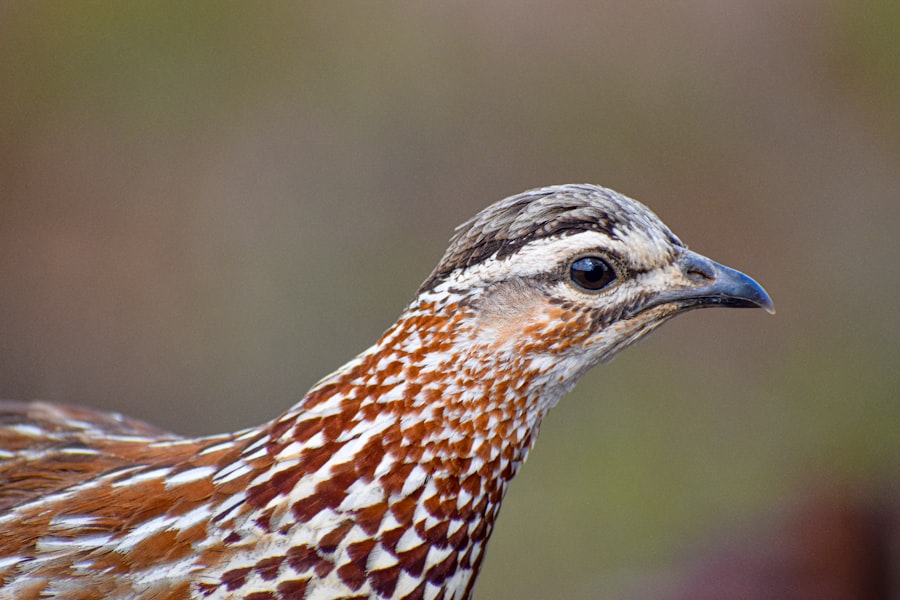
Breeding wild quail comes with its own set of challenges and risks that potential breeders should be aware of before starting a breeding program. One of the primary challenges is managing the genetic diversity of breeding stock to prevent inbreeding and maintain healthy offspring. Additionally, wild quail are susceptible to various diseases and parasites that can impact their health and reproductive success, requiring proactive management strategies to prevent outbreaks.
Another potential risk in breeding wild quail is predation by natural predators or domestic animals, which can pose a threat to the safety and well-being of the birds. Weather-related challenges such as extreme temperatures or severe storms can also impact the health and survival of wild quail if proper housing and protection are not provided. Potential breeders should carefully assess these challenges and risks before starting a breeding program to develop effective management strategies and contingency plans.
Tips for Successful Breeding and Rearing of Wild Quail
To ensure successful breeding and rearing of wild quail, potential breeders should consider several tips to optimize their breeding program. First and foremost, selecting high-quality breeding stock from reputable breeders or suppliers is essential for establishing a healthy and genetically diverse population. Proper housing facilities should be designed to meet the specific needs of wild quail, including protection from predators, adequate space for movement, and comfortable roosting areas.
Managing breeding cycles carefully can help optimize reproductive success and genetic diversity within the population. Providing a balanced diet that meets the nutritional needs of wild quail is essential for their health and reproductive success. Regular health checks by a qualified veterinarian can help monitor for any signs of illness or disease and prevent potential outbreaks. Finally, ongoing education and networking with other quail breeders can provide valuable insights and support for successful breeding and rearing of wild quail.
In conclusion, understanding the wild quail breeding industry requires careful consideration of various factors such as legal regulations, housing requirements, care needs, potential challenges, and tips for success. By thoroughly researching these aspects before entering into wild quail breeding, potential breeders can set themselves up for a successful and sustainable breeding program. With proper knowledge, resources, and dedication, breeding wild quail can be a rewarding endeavor that contributes to wildlife conservation efforts or provides high-quality game birds for hunting or meat production.
If you’re considering breeding wild quail, it’s essential to understand their dietary needs. Poultry Wizard has a helpful article on what vegetables quails eat, which can provide valuable insights into creating a balanced diet for your quail. Understanding their nutritional requirements is crucial for successful breeding and maintaining the health of your quail population. Check out the article here for more information on this topic.
FAQs
What are the benefits of breeding wild quail?
Breeding wild quail can provide a sustainable source of game birds for hunting, as well as a potential source of income for those interested in selling quail for meat or eggs.
Is it legal to breed wild quail?
Laws and regulations regarding the breeding of wild quail vary by location. It is important to research and understand the specific regulations in your area before attempting to breed wild quail.
What are the challenges of breeding wild quail?
Breeding wild quail can be challenging due to their specific habitat and dietary needs. Additionally, maintaining genetic diversity and preventing disease outbreaks can be difficult in a breeding program.
Where can I buy breeding wild quail?
There are various sources for purchasing breeding wild quail, including specialty breeders, game bird farms, and wildlife conservation organizations. It is important to ensure that any quail purchased are obtained legally and ethically.
What do I need to consider before buying breeding wild quail?
Before purchasing breeding wild quail, it is important to consider the legal and ethical implications, as well as the necessary resources and knowledge required to successfully breed and care for wild quail. Additionally, understanding the specific needs of wild quail and having a suitable habitat and diet prepared is essential.
Meet Walter, the feathered-friend fanatic of Florida! Nestled in the sunshine state, Walter struts through life with his feathered companions, clucking his way to happiness. With a coop that’s fancier than a five-star hotel, he’s the Don Juan of the chicken world. When he’s not teaching his hens to do the cha-cha, you’ll find him in a heated debate with his prized rooster, Sir Clucks-a-Lot. Walter’s poultry passion is no yolk; he’s the sunny-side-up guy you never knew you needed in your flock of friends!

